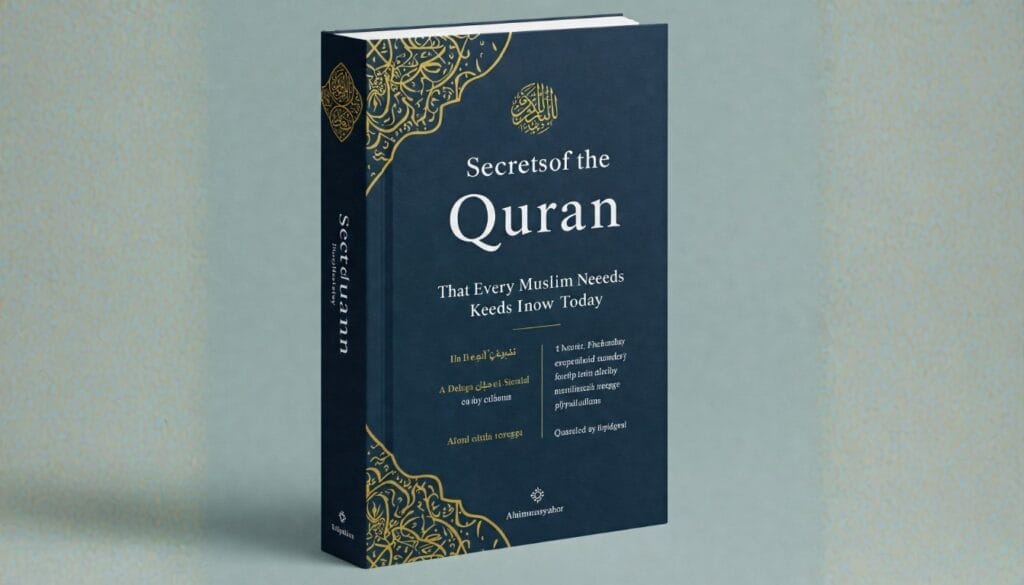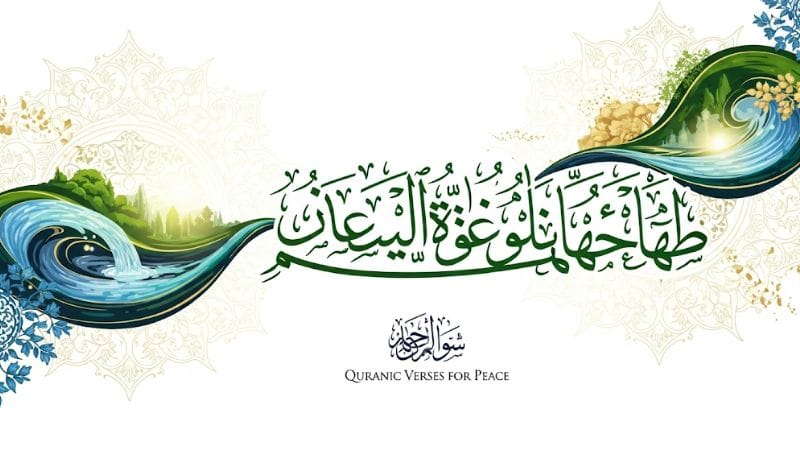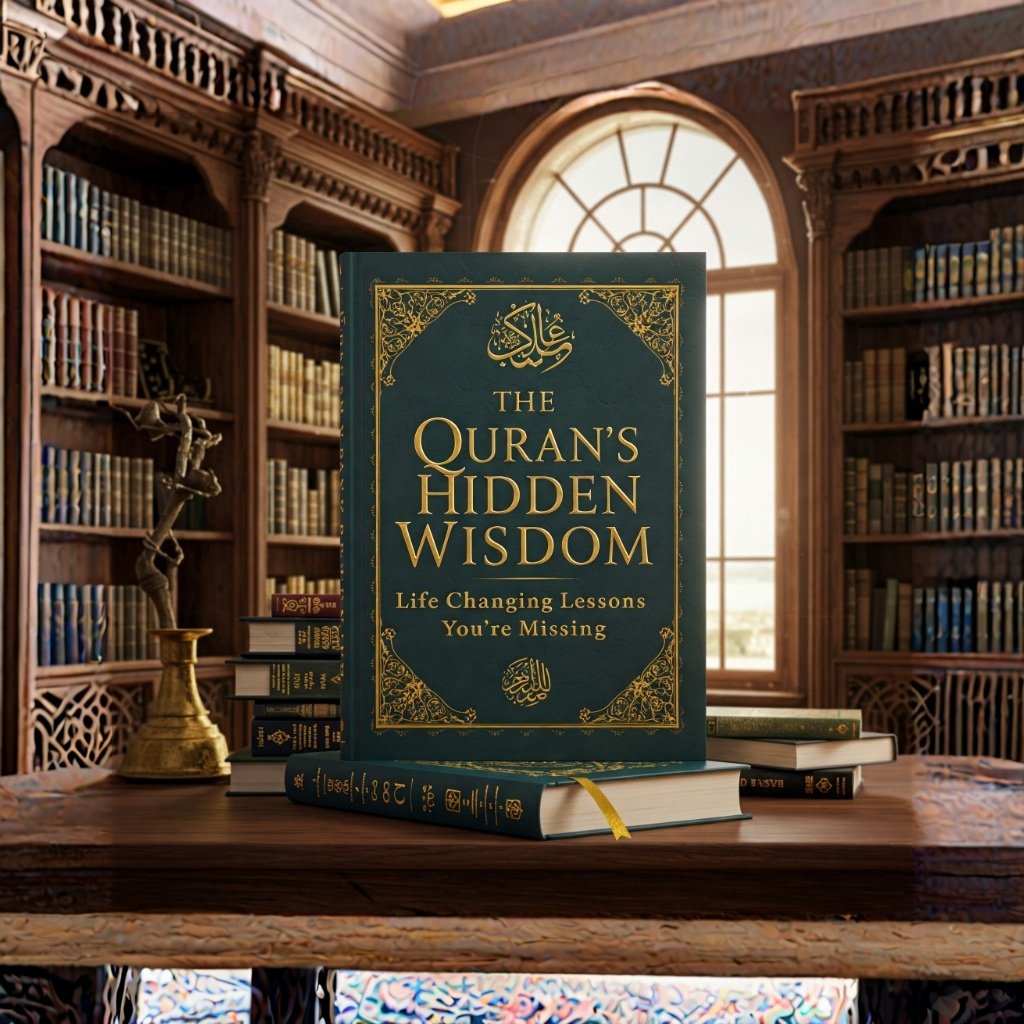The Quran is more than a sacred text for Muslims; it is a divine guide, a source of mercy, and a roadmap for navigating life’s challenges. Within its verses lie profound secrets—timeless wisdom, supplications (duas), and teachings that hold transformative power for those who seek to understand and apply them. These secrets, when unlocked through sincere reflection and practice, can deepen your connection with Allah (SWT), bring peace to your heart, and guide you toward success in this world and the Hereafter. This comprehensive guide reveals the essential secrets of the Quran that every Muslim needs to know today, focusing on powerful duas that address modern-day struggles like stress, uncertainty, and spiritual disconnection.

From duas for protection and forgiveness to supplications for guidance and contentment, the Quran offers solutions for every aspect of life. This article explores these divine treasures, providing their meanings, contexts, and practical applications. Whether you’re a lifelong believer or someone rediscovering your faith, these insights will inspire you to engage with the Quran more deeply and integrate its duas into your daily routine.
Introduction: Unlocking the Quran’s Hidden Treasures
The Quran describes itself as “a guidance for those who are conscious of Allah” (Surah Al-Baqarah 2:2). Its verses are a direct communication from Allah (SWT), offering clarity, comfort, and solutions for every human condition. The Prophet Muhammad (PBUH) said, “The Quran is an intercessor, something given permission to intercede, and it is rightfully believed in” (Sahih Ibn Hibban). Among its greatest gifts are the duas embedded within its verses—supplications that carry divine power to transform lives.
In today’s fast-paced world, where stress, anxiety, and distractions abound, the Quran’s secrets are more relevant than ever. These secrets include not only the spiritual wisdom of its teachings but also the practical tools, like duas, that help us navigate modern challenges. This article uncovers ten powerful Quranic duas and the secrets behind their effectiveness, offering you a pathway to spiritual growth, emotional peace, and worldly success.
Here’s what you’ll find in this guide:
- Ten essential Quranic duas with Arabic text, transliteration, and English translations.
- The spiritual and practical significance of each dua.
- Tips for memorizing and incorporating duas into daily life.
- Recommended resources—books, apps, and courses—with prices, reviews, and ratings.
- Stories and insights to inspire your journey with the Quran.
Let’s dive into these divine secrets and discover how the Quran’s duas can change your life today.
Read more:
Why the Quran’s Secrets Matter in the Modern World
A Timeless Guide for Every Challenge
The Quran is not bound by time or place; its guidance is universal, addressing the needs of humanity across centuries. Allah (SWT) says, “We have not neglected in the Book a thing” (Surah Al-An’am 6:38). Whether you’re facing financial stress, emotional turmoil, or a crisis of faith, the Quran offers wisdom and duas to guide you. Its secrets lie in its ability to speak directly to your heart, providing clarity and comfort.
The Power of Quranic Duas
Duas are a cornerstone of Islamic worship, described by the Prophet (PBUH) as “the essence of worship” (Tirmidhi). Quranic duas are especially powerful because they are Allah’s own words, revealed to His prophets and believers. These supplications carry spiritual weight, helping you seek forgiveness, protection, guidance, and blessings. By reciting them, you align your intentions with divine will, inviting Allah’s mercy into your life.
Emotional and Practical Benefits
Beyond their spiritual value, Quranic duas offer emotional and practical benefits. Studies on prayer and mindfulness show that repetitive, focused recitation can reduce stress, improve focus, and foster resilience. For Muslims, duas like those in the Quran provide a dual benefit: they connect you to Allah while calming your mind and heart. In a world of constant distractions, these duas are a lifeline to inner peace.
10 Essential Quranic Duas Every Muslim Should Know
Below are ten powerful duas from the Quran, each revealing a secret of divine wisdom. For each dua, you’ll find the Arabic text, transliteration, English translation, and guidance on its application in modern life.
1. Dua for Forgiveness and Mercy (Surah Al-A’raf 7:23)
Secret: Humility opens the door to Allah’s mercy.
Arabic:
رَبَّنَا ظَلَمْنَا أَنْفُسَنَا وَإِنْ لَمْ تَغْفِرْ لَنَا وَتَرْحَمْنَا لَنَكُونَنَّ مِنَ الْخَاسِرِينَ
Transliteration:
Rabbana zalamna anfusana wa in lam taghfir lana wa tarhamna lanakunanna minal-khasirin.
Translation:
“Our Lord, we have wronged ourselves, and if You do not forgive us and have mercy upon us, we will surely be among the losers.”
When to Recite:
- After making a mistake or feeling guilt.
- During tawbah (repentance) sessions.
Context: This dua was recited by Prophet Adam and Hawwa (AS) after eating from the forbidden tree, demonstrating the power of sincere repentance.
Modern Application: In a world where guilt and regret can weigh heavily, this dua reminds us that Allah’s mercy is boundless. Recite it when you’ve faltered to renew your faith and find peace.
Impact: It purifies the heart, relieving emotional burdens and fostering hope.
2. Dua for Guidance and Steadfastness (Surah Aal-E-Imran 3:8)
Secret: True guidance requires divine protection from doubt.
Arabic:
رَبَّنَا لَا تُزِغْ قُلُوبَنَا بَعْدَ إِذْ هَدَيْتَنَا وَهَبْ لَنَا مِنْ لَدُنْكَ رَحْمَةً ۚ إِنَّكَ أَنْتَ الْوَهَّابُ
Transliteration:
Rabbana la tuzigh qulubana ba’da idh hadaytana wa hab lana min ladunka rahmatan innaka antal-wahhab.
Translation:
“Our Lord, let not our hearts deviate after You have guided us and grant us from Yourself mercy. Indeed, You are the Bestower.”
When to Recite:
- After Salah or during qunut in Witr prayer.
- When facing doubts or confusion.
Context: This dua was recited by believers seeking to remain steadfast in faith amidst trials.
Modern Application: In an era of misinformation and spiritual distractions, this dua anchors your heart to the truth, protecting you from wavering.
Impact: It strengthens your faith, ensuring you stay on the straight path.
3. Dua for Ease and Confidence (Surah Taha 20:25-26)
Secret: Allah can make any challenge manageable.
Arabic:
رَبِّ اشْرَحْ لِي صَدْرِي وَيَسِّرْ لِي أَمْرِي
Transliteration:
Rabbishrah li sadri wa yassir li amri.
Translation:
“My Lord, expand for me my breast [with assurance] and ease for me my task.”
When to Recite:
- Before stressful situations, like exams or interviews.
- When feeling anxious or overwhelmed.
Context: Prophet Musa (AS) recited this dua before confronting Pharaoh, seeking confidence and ease.
Modern Application: Use this dua when facing workplace stress or personal challenges to find clarity and calm.
Impact: It reduces anxiety, empowering you to tackle difficulties with courage.
4. Dua for Protection (Ayat al-Kursi, Surah Al-Baqarah 2:255)
Secret: Allah’s protection is unmatched and ever-present.
Arabic:
اللَّهُ لَا إِلَٰهَ إِلَّا هُوَ الْحَيُّ الْقَيُّومُ ۚ لَا تَأْخُذُهُ سِنَةٌ وَلَا نَوْمٌ ۚ لَهُ مَا فِي السَّمَاوَاتِ وَمَا فِي الْأَرْضِ ۗ مَنْ ذَا الَّذِي يَشْفَعُ عِنْدَهُ إِلَّا بِإذْنِهِ ۚ يَعْلَمُ مَا بَيْنَ أَيْدِيهِمْ وَمَا خَلْفَهُمْ ۖ وَلَا يُحِيطُونَ بِشَيْءٍ مِنْ عِلْمِهِ إِلَّا بِمَا شَاءَ ۚ وَسِعَ كُرْسِيُّهُ السَّمَاوَاتِ وَالْأَرْضَ ۖ وَلَا يَئُودُهُ حِفْظُهُمَا ۚ وَهُوَ الْعَلِيُّ الْعَظِيمُ
Transliteration:
Allahu la ilaha illa huwal-hayyul-qayyum, la ta’khudhuhu sinatun wa la nawm, lahu ma fis-samawati wa ma fil-ard, man dhal-ladhi yashfa‘u ‘indahu illa bi’idhnih, ya‘lamu ma bayna aydihim wa ma khalfahum, wa la yuhituna bi shay’im min ‘ilmihi illa bima sha’, wasi‘a kursiyyuhus-samawati wal-ard, wa la ya’uduhu hifzuhuma, wa huwal-‘aliyyul-‘azim.
Translation:
“Allah! There is no god but He, the Ever-Living, the Sustainer of existence. Neither drowsiness overtakes Him nor sleep. To Him belongs whatever is in the heavens and whatever is on the earth. Who is it that can intercede with Him except by His permission? He knows what is before them and what is behind them, and they encompass not a thing of His knowledge except for what He wills. His Kursi extends over the heavens and the earth, and their preservation tires Him not. And He is the Most High, the Most Great.”
When to Recite:
- After every obligatory Salah.
- Before sleeping for protection.
Context: Known as the greatest verse in the Quran, Ayat al-Kursi is a shield against harm, as the Prophet (PBUH) promised (Sahih Bukhari).
Modern Application: Recite it to feel secure in an uncertain world, whether facing physical or spiritual threats.
Impact: It instills a sense of safety, dispelling fears and anxieties.
5. Dua for Relief from Distress (Surah Al-Anbiya 21:87)
Secret: Surrendering to Allah in despair brings miraculous relief.
Arabic:
لا إِلَٰهَ إِلَّا أَنْتَ سُبْحَانَكَ إِنِّي كُنْتُ مِنَ الظَّالِمِينَ
Transliteration:
La ilaha illa anta subhanaka inni kuntu minaz-zalimin.
Translation:
“There is no deity except You; exalted are You. Indeed, I have been of the wrongdoers.”
When to Recite:
- During moments of hopelessness or crisis.
- Daily for spiritual resilience.
Context: Prophet Yunus (AS) recited this dua while trapped in the belly of the whale, and Allah saved him (Surah Al-Anbiya 21:88).
Modern Application: Use it when overwhelmed by financial, emotional, or personal struggles to find hope and relief.
Impact: It teaches humility and trust, transforming despair into faith.
6. Dua for Knowledge and Wisdom (Surah Taha 20:114)
Secret: Knowledge is a divine gift that unlocks success.
Arabic:
رَبِّ زِدْنِي عِلْمًا
Transliteration:
Rabbi zidni ‘ilma.
Translation:
“My Lord, increase me in knowledge.”
When to Recite:
- Before studying, working, or learning.
- When seeking clarity in decisions.
Context: This dua reflects the Quran’s emphasis on knowledge as a path to righteousness.
Modern Application: In an information-driven world, recite this to excel in academics, careers, or personal growth.
Impact: It enhances understanding and decision-making, fostering success.
7. Dua for Success in Both Worlds (Surah Al-Baqarah 2:201)
Secret: Balancing worldly and spiritual goals leads to true contentment.
Arabic:
رَبَّنَا آتِنَا فِي الدُّنْيَا حَسَنَةً وَفِي الْآخِرَةِ حَسَنَةً وَقِنَا عَذَابَ النَّارِ
Transliteration:
Rabbana atina fid-dunya hasanatan wa fil-akhirati hasanatan wa qina ‘adhaban-nar.
Translation:
“Our Lord, give us in this world [that which is] good and in the Hereafter [that which is] good and protect us from the punishment of the Fire.”
When to Recite:
- After Salah or during daily supplications.
- When setting personal or professional goals.
Context: This dua was recited by believers seeking balance between worldly success and spiritual salvation.
Modern Application: In a world obsessed with material gain, this dua keeps your priorities aligned with eternal success.
Impact: It fosters gratitude and purpose, ensuring your efforts are blessed.
8. Dua for Patience and Strength (Surah Al-Baqarah 2:250)
Secret: Patience is a divine gift that overcomes adversity.
Arabic:
رَبَّنَا أَفْرِغْ عَلَيْنَا صَبْرًا وَثَبِّتْ أَقْدَامَنَا وَانْصُرْنَا عَلَى الْقَوْمِ الْكَافِرِينَ
Transliteration: Rabbana afrigh ‘alayna sabran wa thabbit aqdaman wa ansurna ‘alal-qawmil-kafirin.
Translation:
“Our Lord, pour upon us patience and plant firmly our feet and give us victory over the disbelieving people.”
When to Recite:
- During personal or societal challenges.
- When facing opposition or hardship.
Context: Recited by the companions of Prophet Dawud (AS) before battle, this dua seeks resilience and divine support.
Modern Application: Use it when dealing with workplace conflicts, family struggles, or societal pressures to stay steadfast.
Impact: It builds inner strength, helping you persevere with dignity.
9. Dua for Contentment and Gratitude (Surah Ibrahim 14:7)
Secret: Gratitude multiplies blessings.
Arabic:
وَإِذْ تَأَذَّنَ رَبُّكُمْ لَئِنْ شَكَرْتُمْ لَأَزِيدَنَّكُمْ ۖ وَلَئِنْ كَفَرْتُمْ إِنَّ عَذَابِي لَشَدِيدٌ
Transliteration:
Wa idh ta’adhana rabbukum la’in shakartum la’azidannakum wa la’in kafartum inna ‘adhabi lashadid.
Translation:
“And [remember] when your Lord proclaimed, ‘If you are grateful, I will surely increase you [in favor]; but if you deny, indeed, My punishment is severe.’”
When to Recite:
- Daily to cultivate gratitude.
- When feeling discontent or envious.
Context: This verse emphasizes the power of gratitude as a form of worship and supplication.
Modern Application: In a consumer-driven world, recite this to focus on what you have, attracting more blessings.
Impact: It shifts your perspective, fostering joy and abundance.
10. Dua for Forgiveness and Well-Being (Surah Aal-E-Imran 3:147)
Secret: Seeking forgiveness brings holistic success.
Arabic:
رَبَّنَا اغْفِرْ لَنَا ذُنُوبَنَا وَإِسْرَافَنَا فِي أَمْرِنَا وَثَبِّتْ أَقْدَامَنَا وَانْصُرْنَا عَلَى الْقَوْمِ الْكَافِرِينَ
Transliteration:
Rabbana ighfir lana dhunubana wa israfana fi amrina wa thabbit aqdaman wa ansurna ‘alal-qawmil-kafirin.
Translation:
“Our Lord, forgive us our sins and the excess [committed] in our affairs and plant firmly our feet and give us victory over the disbelieving people.”
When to Recite:
- During trials or after mistakes.
- In daily prayers for comprehensive blessings.
Context: This dua was recited by believers facing challenges, seeking forgiveness and strength.
Modern Application: Use it to seek forgiveness for excesses, like overspending or procrastination, while asking for stability.
Impact: It cleanses the soul, paving the way for success.
How to Unlock the Quran’s Secrets Through Duas
To fully benefit from these duas, integrate them into your life with intention and consistency. Here are practical steps:
- Start with Sincerity
Recite each dua with a focused heart, understanding its meaning to enhance ikhlas (sincerity). - Memorize Gradually
Begin with short duas like Rabbi zidni ‘ilma and use audio recitations to master longer ones. - Incorporate into Salah
Recite duas during sujood, after tashahhud, or in qunut for maximum acceptance. - Use Technology
Apps like Quran Companion can help you memorize and track your progress. - Reflect and Apply
Journal about how each dua impacts your life, noting changes in your emotions or circumstances. - Share the Knowledge
Teach these duas to others, spreading blessings and reinforcing your own practice.
The Role of Tafsir in Understanding Quranic Secrets
To truly unlock the Quran’s secrets, studying tafsir (Quranic exegesis) is invaluable. Tafsir provides context, historical background, and deeper meanings, making duas more impactful. For example, understanding the story of Prophet Yunus (AS) enhances the emotional weight of his dua. Recommended tafsir resources include:
- Tafsir Ibn Kathir: A comprehensive, authentic exegesis.
- Tafsir Al-Jalalayn: Concise and accessible for beginners.
- Maariful Quran by Mufti Muhammad Shafi: Detailed and relevant to modern issues.
Recommended Resources to Deepen Your Quranic Practice
Explore these trusted resources to enhance your understanding and recitation of Quranic duas. Each includes prices, reviews, and ratings.
Books
- “The Quran: English Meanings and Notes” by Saheeh International
- Description: A clear, modern translation with concise notes for easy understanding.
- Price: $15–$20 (paperback).
- Rating: 4.9/5 (Amazon).
- Review: “Perfect for beginners and scholars alike—clear and authentic” (user review).
- Where to Buy: Amazon, Islamic bookstores.
- “Fortress of the Muslim” by Sa’id bin Ali bin Wahf Al-Qahtani
- Description: A compact collection of duas, including Quranic supplications.
- Price: $5–$10.
- Rating: 4.8/5 (Amazon).
- Review: “A must-have for daily duas—small but powerful” (user review).
- Where to Buy: Online retailers, mosques.
Mobile Apps
- Quran Companion
- Features: Memorization tools, audio recitations, and progress tracking.
- Price: Free with in-app purchases ($4.99–$9.99).
- Rating: 4.8/5 (Google Play).
- Review: “Made memorizing duas so easy—love the audio feature” (user review).
- Download: iOS/Android app stores.
- Muslim Pro
- Features: Quran, dua library, prayer times, and Qibla finder.
- Price: Free; Premium $9.99/year.
- Rating: 4.5/5 (App Store).
- Review: “The dua section is a game-changer for daily practice” (user review).
- Download: iOS/Android app stores.
Online Courses
- Bayyinah Institute: Quranic Reflections
- Description: Explores the Quran’s themes and lessons, including duas.
- Price: $99–$150.
- Rating: 4.9/5 (student feedback).
- Review: “Transformed my connection with the Quran—highly recommend” (student review).
- Access: Bayyinah TV website.
- SeekersGuidance: The Art of Supplication
- Description: A free course on the etiquette and power of dua.
- Price: Free (donations encouraged).
- Rating: 4.8/5 (student reviews).
- Review: “Practical and inspiring—perfect for beginners” (student review).
- Access: SeekersGuidance.org.
Fee Structure Overview
| Resource | Type | Price | Notes |
|---|---|---|---|
| The Quran: English Meanings | Book | $15–$20 | Clear translation |
| Fortress of the Muslim | Book | $5–$10 | Compact dua collection |
| Quran Companion | App | Free (in-app purchases) | Memorization focus |
| Muslim Pro Premium | App | $9.99/year | Comprehensive Islamic app |
| Bayyinah Quranic Reflections | Course | $99–$150 | Thematic Quran study |
| SeekersGuidance Dua Course | Course | Free | Etiquette and power of dua |
Real-Life Stories: How Quranic Duas Changed Lives
These duas have transformed countless lives, as shared by believers worldwide:
- Aisha, 34: “I was struggling with anxiety at work. Reciting Rabbishrah li sadri before meetings gave me confidence, and I landed a promotion.”
- Omar, 40: “During a financial crisis, the Dua of Prophet Yunus became my lifeline. Within weeks, I found unexpected income sources.”
- Zainab, 27: “Ayat al-Kursi made me feel safe in a new city. I recite it every night and feel Allah’s protection.”
These stories show that the Quran’s secrets are not abstract—they’re practical tools for real change.
SEO Tips for Your Blog Post
To ensure this article reaches a wide audience, follow these SEO best practices:
- Target Key Keywords
- Primary: “Secrets of the Quran duas”
- Secondary: “Quranic supplications for daily life,” “Islamic duas for modern Muslims,” “powerful Quran prayers.”
- Use keywords in the title, meta description, H1/H2 headings, and content (1–2% density).
- Craft a Compelling Meta Description
- Example: “Unlock the secrets of the Quran with 10 powerful duas for today’s challenges. Learn their meanings and transform your life now!”
- Use Structured Headings
- H1: Main title.
- H2: Sections (e.g., “Why the Quran’s Secrets Matter”).
- H3: Subsections (e.g., specific duas).
- Incorporate Links
- Internal: Link to related posts like “Daily Dhikr for Spiritual Growth” or “How to Perform Tawbah.”
- External: Reference Quran.com or Sunnah.com for credibility.
- Add Visuals
- Use images of Arabic calligraphy or serene Islamic settings.
- Include alt text like “Arabic text of Quranic dua for guidance.”
- Engage Readers
- End with a call-to-action: “Which dua will you recite first? Share in the comments!”
- Add social sharing buttons for platforms like X.
FAQs: Your Questions About Quranic Duas Answered
Can I Recite Duas in My Native Language?
Yes, Allah (SWT) understands all languages. While Quranic duas in Arabic carry special blessings, personal supplications in your language are valid.
How Do I Know If My Dua Is Accepted?
The Prophet (PBUH) said, “Every dua is answered” (Tirmidhi). Allah responds by granting your request, averting harm, or reserving reward for the Hereafter.
How Often Should I Recite These Duas?
Aim for daily recitation, especially after Salah or during adhkar. Consistency amplifies their spiritual and emotional benefits.
What If I Struggle to Memorize?
Start with short duas and use apps or audio resources. Allah values your effort, even if progress is slow.
Conclusion: Embrace the Quran’s Secrets Today
The secrets of the Quran are not hidden from those who seek them. The ten duas shared in this guide are divine treasures, offering guidance, protection, and peace for every Muslim today. Allah (SWT) says, “Indeed, this Quran guides to that which is most suitable” (Surah Al-Isra 17:9). By memorizing and reciting these supplications, you can unlock the Quran’s transformative power, aligning your life with divine wisdom.
Begin now: choose one dua, recite it with sincerity, and explore the recommended resources to deepen your practice. Share this article with others to spread the blessings, and let us know in the comments which dua inspires you most. For more Islamic insights, check out our posts on Strengthening Your Faith Through Dhikr or The Power of Tawakkul.
Call-to-Action: Subscribe to our newsletter and download our free Quranic Dua Guide PDF to keep these supplications at your fingertips. May Allah (SWT) make the Quran a light for your heart and a guide for your life. Ameen.
About the Author: [Your Name] is a passionate writer dedicated to Islamic spirituality and personal growth. With deep research into the Quran and Hadith, [Your Name] creates authentic, uplifting content to help Muslims thrive in faith and life.














Post Comment